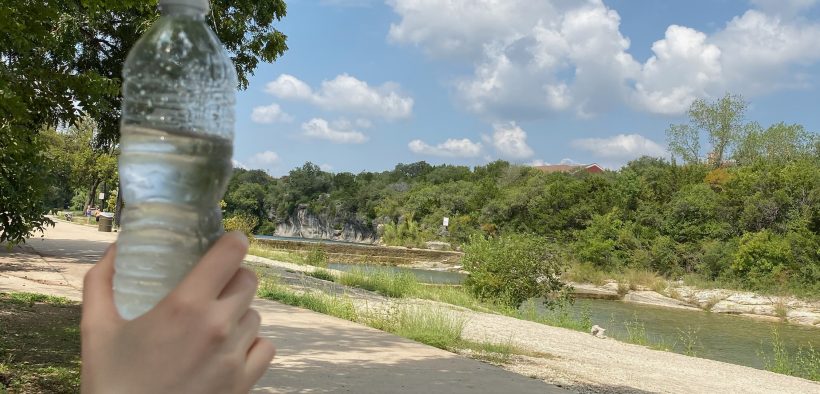The Story of Plastic: The Material Designed to Outlive Us
Share

The Story of Plastic, the first film in Soutwestern’s Green Series, highlights the harmful effects of plastic, ranging from environmental impacts to public health disasters. The documentary, directed by Deia Schlosberg — who also filmed the Keystone Pipeline and Dakota Access Pipeline protests, relies on anecdotes from community activists, scientists, and citizens across the globe (from rural nations in Southeast Asia to our backyards) to tell the story of plastic and how it’s ruining the planet we call home.
How much plastic do you think recycled is actually recycled? 90%? Maybe 85 on a bad day? Only 14 percent of plastic is recycled, but only two percent is effectively recycled due to contamination from biomatter, like the oily-stained pizza box from last Friday night. And most of this “recycled” plastic is downcycled into plastic bags, just another single-use plastic that might end up in landfills (40%) or littering our neighborhoods (32%).
Adding insult to injury, the people contributing the least to plastic waste generally reap the fruits of plastic companies’ labors. Oil, the primary ingredient for plastic, is not only spilling into oceans but also into drinking wells. In Karnes City, Texas, oil refineries polluted waterways to the point that the citizens needed to rely on bottled water over the tainted tap water. Ironic. The story told in Karnes remains sadly uncommon in modern history. Many communities lacking political power and financial excess become prey to companies seeking cheap locations to assemble oil refineries, erect fracking sites, and dump plastic waste, creating public health disasters for surrounding communities. Asthma, leukemia, and other health problems tend to see a spike in locations with poorer air and water quality, communities sacrificed in the name of plastic.
The Q&A after the documentary brings a certain level of levity and hope to an otherwise sobering documentary. Moderated by Veronica Johnson, Southwestern’s sustainability coordinator, the panelists answered student and faculties’ questions about recycling and plastic waste. The expert panel included Anna Farrell-Sherman, a Clean Water Associate with Environment Texas; Jordan Fengel, the Executive Director of State of Texas Alliance for Recycling (STAR); Paul Gonin, the Chapter Leader for TX-31’s Citizen’s Climate Lobby; and Gena McKinley, the Strategic Initiatives Division Manager at Austin Resource Recovery.
One of the attendees asked a question I believe concerned everyone in attendance: How was COVID-19 affecting the plastic industry? The plastic industry loves the pandemic, taking advantage of the increased demand for single-use masks despite cloth masks being the better option.
Farrell-Sherman said, “The coronavirus survives longer on plastic surfaces than on cloth surfaces”.
As a parting gift, the panelists gave attendees tokens of advice for our future: cut down on single-use plastics and be the change we want to see in the world. It sounds cheesy, like a cliché, but they gave sound advice. The only way change can truly happen is from a grass-roots level. We cannot rely on private industries to put long-term, positive change over short-term profits. We, the people who see the effects of plastic on our planet and fear for our future, need to pressure our representatives, our public servants, to push for laws banning single-use plastics. We need to do what is within our financial ability to live sustainably, remembering we are not the sole reason for the tremendous amounts of plastic waste littering our oceans and streets. Most importantly, we must vote. Voting amplifies our desires for a cleaner, brighter future. Maybe, we can live to see the end of plastic’s story.
If you want to learn more about environmental crises impacting our world today, feel free to check out the Georgetown Green Film Series website to stay updated on the upcoming documentaries, like The Condor & the Eagle showing on October 15, 2020. To learn more about how Southwestern is staying sustainable, the Sustainability Office has an official instagram account at “su.sustain”.
